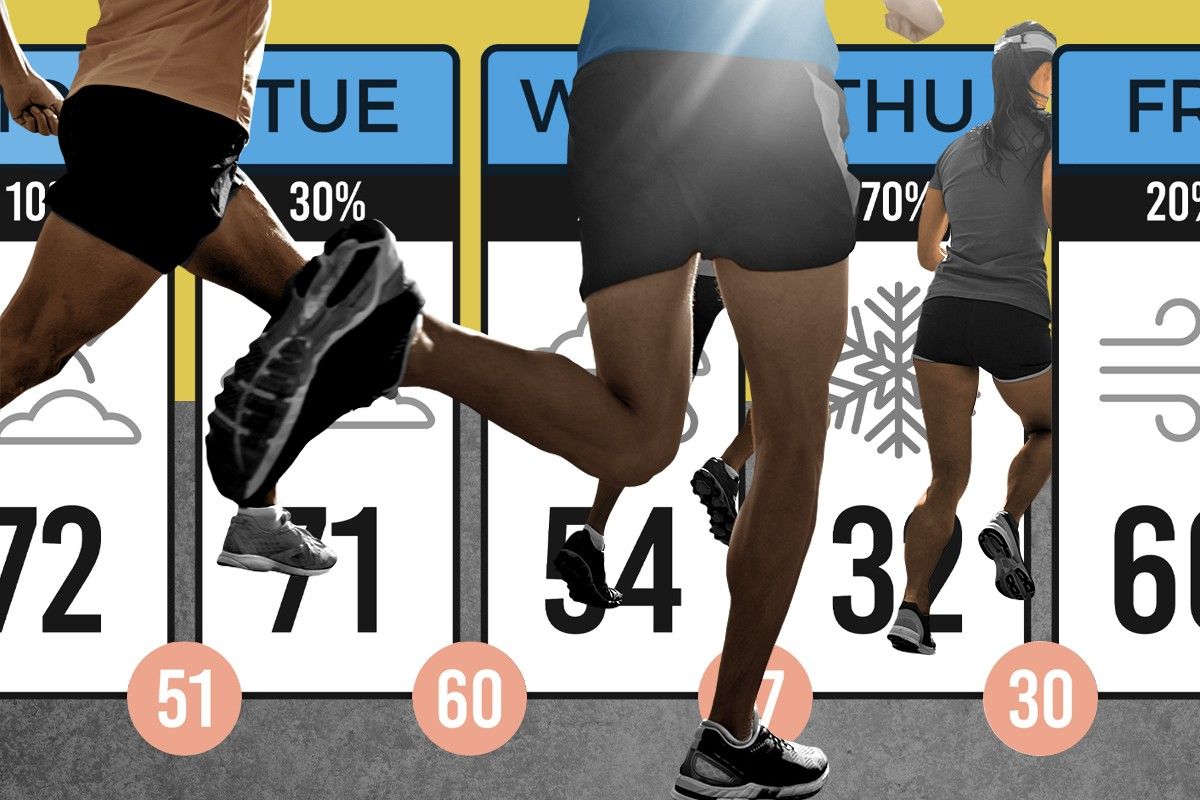The second Saturday of April is the most important weather-related day on New England’s calendar, if not America’s.
The reason? It’s when Boston Marathon Monday finally appears in the 10-day forecast.
Running a marathon is one of the most difficult and grueling challenges in sports; athletes spend months logging hundreds of cumulative miles and dodging injuries in preparation for the big event. And for amateur runners who don’t have an Olympic Games in their cards, Boston is
the race — with a tightly competitive field of 30,000 participants, it’s the oldest and most iconic marathon in the world.
Which is why one bad window of weather can ruin
everything.
Take 2018, when torrential rain and temperatures in the 30s
led more than half of the professional field to drop out. Or 2012, when 4,000 entrants opted to defer their race rather than run in the blazing 89-degree heat. Or 2007, when runners had to face 30-mile-per-hour headwinds and sleet on a course abandoned by no-show volunteers.
So what’s it going to be this year? When the forecast was first announced on Saturday, it was all of the above.
The weather reports leading up to the 2023 marathon, which takes place this coming Monday, have induced a lot of whiplash. Depending on the timing of a weekend storm, runners have been told they will either face “the challenge of rain and gusty winds” on Monday — or, “if the storm front slows down … a very warm and humid day,”
Time Out writes. Those would be two very different races and in addition to complicating packing, the uncertainty added another level of anxiety for runners who have nothing better to do than refresh the forecast during tapering. (The latest forecasts have since calmed down a bit.)
Boston is already
one of the most meteorologically unpredictable cities in the country and climate change is making reliable forecasts even harder. Future marathon forecasts in particular will be prone to more of the will-it-be-hot-or-cold? back and forth as the warm jet stream and cold Canadian air flip influence over New England in the spring. “Some evidence indicates that the atmosphere may become more ‘wavy’” as the climate continues to warm “and thus these sorts of temperature swings could occur more often,” Adam Schlosser, a senior research scientist at the MIT Center for Global Change Science, told The Boston Globe last year.
The ideal forecast for a marathon is overcast with a temperature of
43.2 degrees Fahrenheit (or slightly colder for elites). But Boston, which has had an average start temperature of 56 degrees over the past 22 years, is getting hotter. In a 2017 Climate.gov study of the Massachusetts Climate Division (which includes Boston), the average maximum temperature was observed to have risen at a rate of 0.3 degrees per decade since 1897, the year of the first race — “more than double the temperature rise recorded for the contiguous United States as a whole (0.12 degrees per decade).” In the last 30 years, that warming has more than tripled, “ranging from 1.0 degree to 1.3 degrees per decade in the Boston area, depending on the exact start and end year you use to calculate the trend.”
 Marathon Mondays are tracking warmer in Boston.Climate.gov
Marathon Mondays are tracking warmer in Boston.Climate.gov
Similarly, a 2012 study published in
PLOS One found that Boston proper is now “about 4 degrees warmer on average in the spring than it was in the 1890s … due to a combination of global warming and the urban heat island effect associated with large cities.” With the caveat that Beantown’s spring weather can be all over the map in any given year, the researchers further found that if “Boston temperatures were to continue to warm by 4.5 degrees by the end of the century (a mid-range estimate for global warming), there will be a 64% chance that winning times will be slowed” due to the effects of heat on strenuous physical performance.
Race organizers have already taken measures to make conditions safer for athletes; in 2007, the marathon start time was
bumped back from noon to 10 a.m., in part to limit exposure to the highest midday temperatures. Still, “the next few decades will tell whether morning start times and heat warnings will be enough to keep winning marathon runners from slowing in a steadily warming world,” Boston University biology professor Dr. Richard B. Primack, who led the study, wrote.
This year, at least, runners can probably relax a little: The latest forecast shows the high topping out at 60 degrees on Monday, with a start temperature of 45 degrees in Hopkinton at 9 a.m. Though there’s a chance of light showers, there is also the possibility of a “helpful” wind on runners’ backs.
You might even call it a perfect spring day. Phew.





 Marathon Mondays are tracking warmer in Boston.Climate.gov
Marathon Mondays are tracking warmer in Boston.Climate.gov


 About 40 fires are out of control in Canada.
About 40 fires are out of control in Canada.

